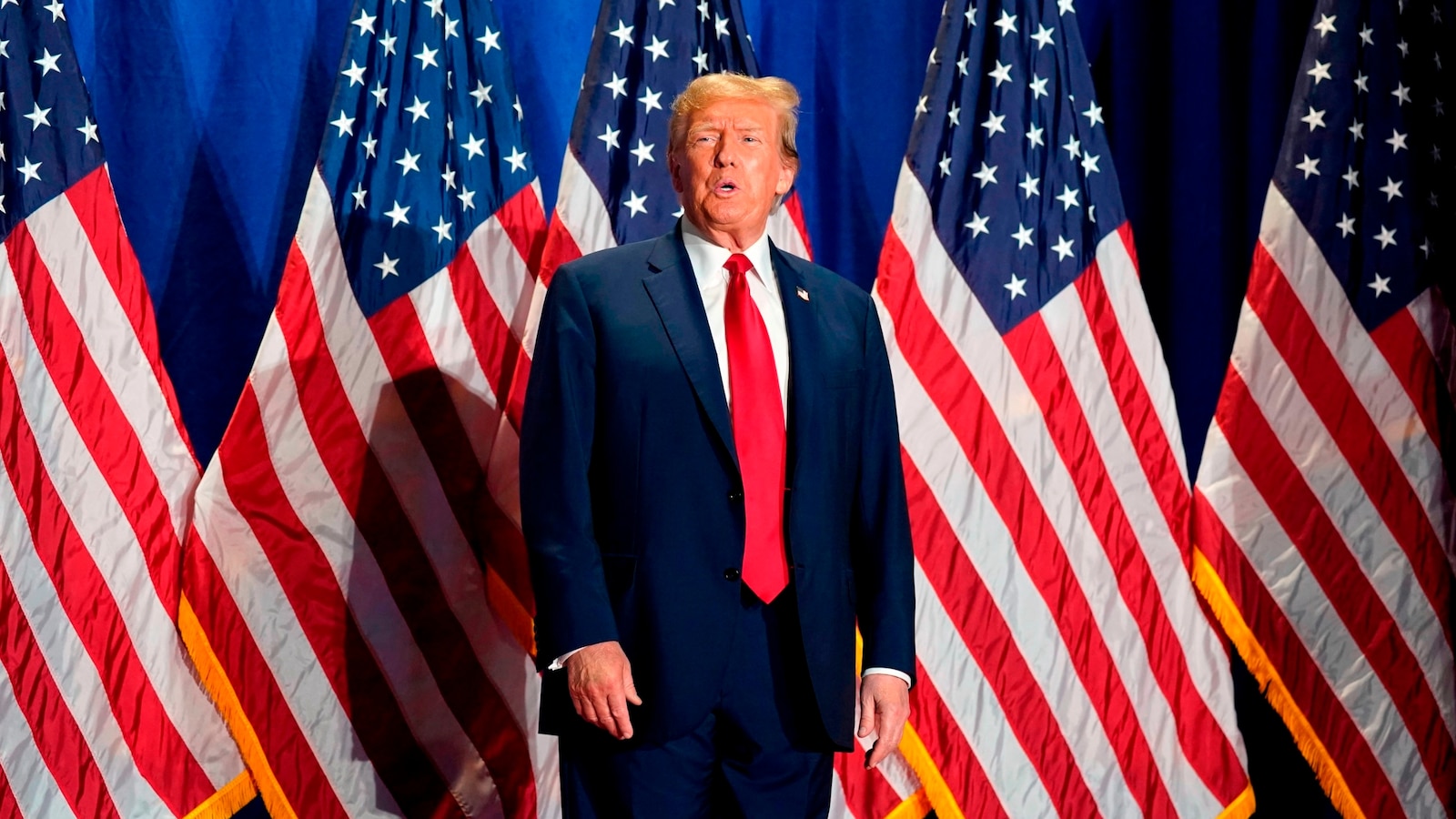The U.S. Supreme Court’s ruling Monday knocking down Colorado’s move to remove Donald Trump from the state’s Republican primary ballot was a clear legal win for the former president, but the court also struck a blow to a central theme of Trump’s presidential campaign: that the American legal system is hopelessly corrupt, conflicted and rigged against him.
Four of the justices — Amy Coney Barrett and the three justices put on the court by Democratic presidents — disagreed with some aspects of the opinion, but the court was forcefully unanimous the on the central question of the case: whether a state can keep a presidential candidate off the ballot who is found to have engaged in insurrection against the United States.
The justices were fully aware their unanimity sent a message to a country where the leading Republican candidate has portrayed the myriad legal proceedings involving him as a political witch hunt orchestrated by his political opponents.
“For present purposes, our differences are far less important than our unanimity: All nine Justices agree on the outcome of this case,” Justice Barrett wrote in her concurring opinion. “That is the message Americans should take home.”

United States Supreme Court Associate Justice Amy Coney Barrett poses for an official portrait in the Supreme Court building in Washington, D.C., Oct. 7, 2022.
Alex Wong/Getty Images/FILE
Justice Barrett’s concurring opinion was short – just two paragraphs – and it made it clear the message the court was sending went beyond the specifics of this case. The Supreme Court, as divided and as mired in controversy as it has been, can uphold the rule of law without regard to the political views of the Justices even — especially — in a case with such far-reaching political implications.
“The Court has settled a politically charged issue in the volatile season of a Presidential election,” Barrett wrote. “Particularly in this circumstance, writings on the Court should turn the national temperature down, not up.”

Former President Donald Trump arrives at a campaign rally in Richmond, VA, Mar. 2, 2024.
Steve Helber/AP
Trump, predictably, praised Monday’s ruling.
“It was a very important decision,” he said in Mar-a-Lago hours after it was announced, calling it “very well-crafted. And I think it will go a long way toward bringing our country together.”
He added, “I have great respect for the Supreme Court, and I want to just thank them for working so quickly and so diligently and so brilliantly.”

U.S. Supreme Court justices Amy Coney Barrett, Neil M. Gorsuch, Brett M. Kavanaugh, Ketanji Brown Jackson, Sonia Sotomayor, Clarence Thomas, Chief Justice John G. Roberts, Jr., Samuel A. Alito, Jr. and Elena Kagan pose for their group portrait at the Supreme Court in Washington, U.S., October 7, 2022. REUTERS/Evelyn Hockstein/File Photo
Evelyn Hockstein/Reuters
Just as predictably, he will attack the court if they rule against him on the next big case that will have an impact on his fate (as a candidate and as a defendant) — the presidential immunity case, with arguments scheduled for the week of April 22.
The Trump playbook is well established. When legal proceedings don’t go his way, he lashes out at judges, prosecutors, court employees, witnesses and even potential juries. The Supreme Court, including the justices he nominated to the court, have been the target of Trump’s wrath when they have shown independence in the past.
In my book, “Betrayal,” I recounted what he said at his rally near the Capitol on Jan. 6, 2021: “He lashed out at the Supreme Court for rejecting his legal challenges, suggesting the justices he had nominated ‘ruled against Trump’ because they were concerned about how they would be received ‘in the social circuit.'”
In 2022, Trump blasted the Supreme Court for unanimously ordering the IRS to hand over his federal income tax returns to a congressional committee.
“Why would anybody be surprised that the Supreme Court has ruled against me, they always do!” Trump wrote on his social media platform Truth Social. “The Supreme Court has lost its honor, prestige, and standing, & has become nothing more than a political body, with our Country paying the price.
“Shame on them!” he continued.

Chief Justice of the United States John Roberts attends the State of the Union address in Washington, D.C., Feb. 7, 2023.
Pool/Getty Images
After Trump lashed out at one federal judge back in 2018 as an “Obama judge”, Chief Justice John Roberts took the highly unusual step of responding.
“We do not have Obama judges or Trump judges, Bush judges or Clinton judges,” Roberts said at the time. “What we have is an extraordinary group of dedicated judges doing their level best to do equal right to those appearing before them.”
Trump immediately hit back, tweeting, “Sorry Chief Justice John Roberts, but you do indeed have ‘Obama judges,’ and they have a much different point of view than the people who are charged with the safety of our country.”
No such complaint came today when two Justices Trump would brand as “Obama judges” and one he would brand as a “Biden judge” joined the others in a ruling that pleased Trump but that full court believed was consistent with the Constitution.

“Tired of Winning,” 2023, by Jonathan Karl.
Penguin Random House
ABC News Chief Washington Correspondent Jonathan Karl is the author of three books on Donald Trump, the more recent, “Tired of Winning: Donald Trump and the End of the Grand Old Party.”

